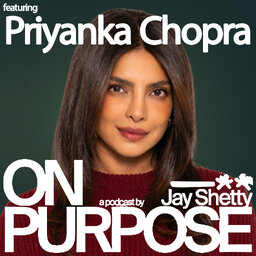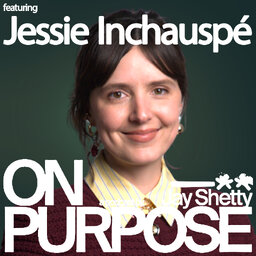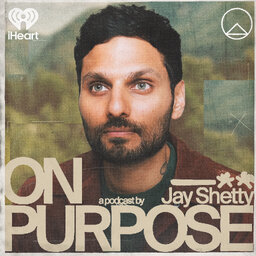Mike Milken ON: How to Connect Your Life Purpose with Business Success & The Mindset Behind Strategic Decision Making
Have you ever had a brilliant idea or solution, only to find resistance when trying to implement it?
In this enlightening episode, we welcome a visionary leader who empowers companies to create a backbone for modern financial markets worldwide and revolutionize our take on science and modern medicine.
Today, I welcome Mike Milken, who has been uniquely successful in creating value, whether measured in lives saved (Fortune magazine called him “The Man Who Changed Medicine”), students inspired (Forbes said he is an education visionary), or jobs created. Beginning in 1969, he and his colleagues financed thousands of companies that collectively created millions of jobs.
Join us as we explore the journey of turning dreams into reality, despite the initial challenges and obstacles.
In the face of life-threatening illness, what will you choose to focus on?
Together, we delve into the realm of cancer research and the importance of providing support to drive groundbreaking advancements, uncover the fascinating world of gut health and the profound impact it has on our immunity, the profound connection between personal health and the well-being of the world we inhabit, and we ponder whether laboratory-grown food is a sustainable, long-term change for the betterment of our planet.
Now, envision a future where pure, uncontaminated food can be created - how would this impact our lives and the world around us?
In this interview with Mike Milken, you'll learn:
How science has evolved over the years
The years of scientific research on cancer treatment and other illnesses
The importance of organic food intake
How we can be more proactive in taking care of our health
How impactful investors are in financing economic and science based companies
Tune in on this thought-provoking journey as we unlock the wisdom and potential to create positive change in ourselves and the world. Let us embrace our innate ability to envision and manifest a healthier, harmonious future for all.
With Love and Gratitude,
Jay Shetty
What We Discuss:
00:00 Intro
00:35 “Just because you had a solution doesn’t mean that people will adopt it.”
04:17 Empowering companies financially to create a backbone for the modern financial markets around the world
10:08 It was an idea, it was a dream, but it wasn’t a reality yet
16:47 If you’re true to yourself and you know the issues, you can restart your life with a different path
23:19 Revenge and bitterness are unproductive emotions, they become your prison
26:13 What do you focus on when you encounter a life threatening illness?
37:08 Providing support for cancer research and convincing people to help with the research
44:57 The evolution of intensive research on gut health and how our immunity develops in accordance to the environment you live in
53:30 What will you do if you can cure your disease in your own lifetime?
57:58 Would you eat food grown in a laboratory? Is this a substantial long-term change?
01:00:46 Your immune system is smarter than all the scientists in the world, but something in your body is turning it off
01:06:17 A healthy human makes a healthy planet. How do we attain this?
01:11:22 What will you do when you have the ability to create pure food and not contaminate the planet?
01:16:10 Mike on Final Five
Episode Resources:
In 1 playlist(s)
On Purpose with Jay Shetty
My name is Jay Shetty, and my purpose is to make wisdom go viral. I’m fortunate to have fascinating …Social links
Follow podcast
Recent clips

PRIYANKA CHOPRA JONAS: Fame, Motherhood, Love and the Moment That Changed Everything
1:49:49

Jessie Inchauspé: 90% of Pregnant People Are Missing THIS Nutrient (Follow THIS Simple Diet To Reduce Glucose Spikes & Protect Your Baby’s Brain & Metabolism)
1:12:12

Stop Trying to “Win” An Argument With Your Partner! (THIS Shift Will Turn Conflict into Communication)
38:35
 On Purpose with Jay Shetty
On Purpose with Jay Shetty